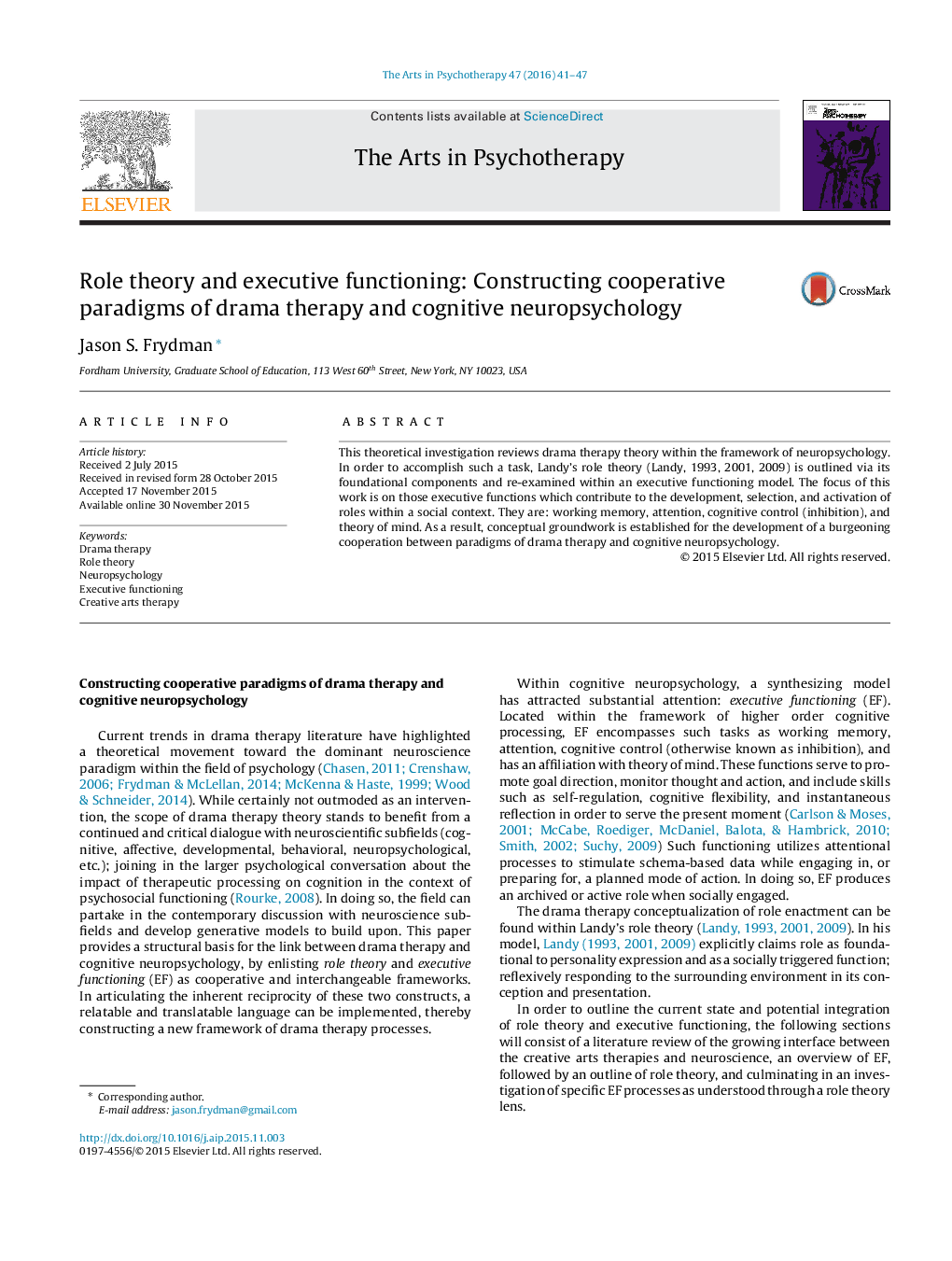| Article ID | Journal | Published Year | Pages | File Type |
|---|---|---|---|---|
| 343623 | The Arts in Psychotherapy | 2016 | 7 Pages |
Abstract
This theoretical investigation reviews drama therapy theory within the framework of neuropsychology. In order to accomplish such a task, Landy's role theory (Landy, 1993, Landy, 2001 and Landy, 2009) is outlined via its foundational components and re-examined within an executive functioning model. The focus of this work is on those executive functions which contribute to the development, selection, and activation of roles within a social context. They are: working memory, attention, cognitive control (inhibition), and theory of mind. As a result, conceptual groundwork is established for the development of a burgeoning cooperation between paradigms of drama therapy and cognitive neuropsychology.
Related Topics
Health Sciences
Medicine and Dentistry
Psychiatry and Mental Health
Authors
Jason S. Frydman,
